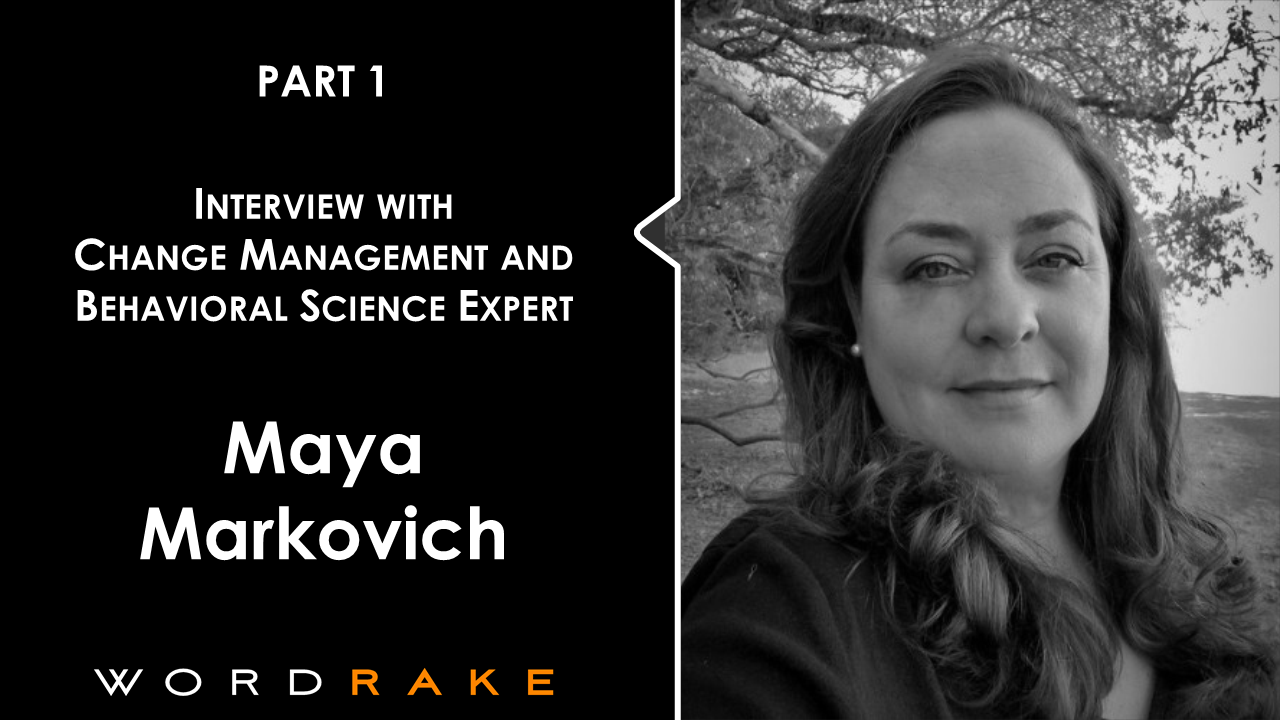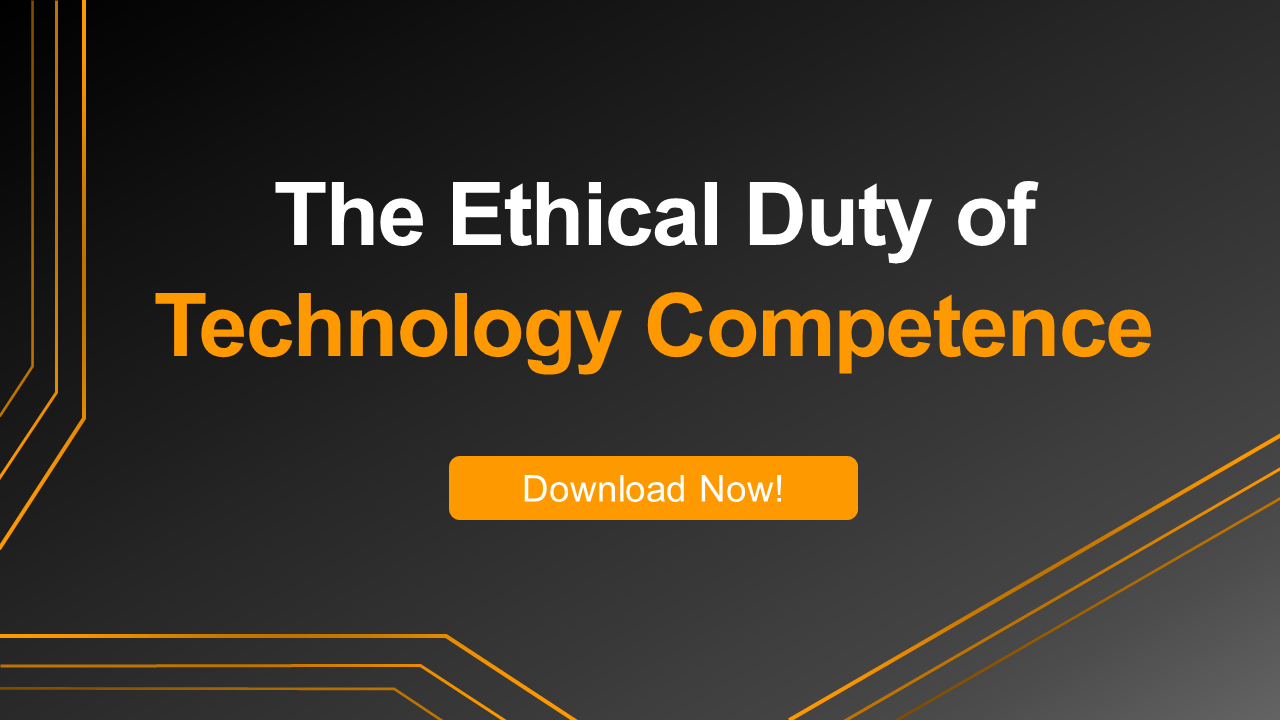Part 1: Behavioral Economics and Legal Business
There’s a science to changing minds and changing behaviors—and Maya Markovich has studied it. She combines her Masters in social and organizational psychology with her JD and practice experience in her role at Nextlaw Labs, a global legal technology accelerator and innovation catalyst. In this three-part interview, Maya explains what drives behavior and why understanding it matters in the legal profession today.
In Part 1, Maya shares how she earned her expertise and lays the framework for deeper discussion of behavioral economics and change management coming in Parts 2 and 3. If you’re interested in building the future of law, this interview is the ideal place to start.
What is your role and how is it related to social science, behavioral economics, and change management?
I am the Chief Growth Officer at Nextlaw Labs, and our mandate is broadly to change the business and practice of law via technology, so I get to work on an incredibly wide variety of high impact, external-facing, and internal innovation initiatives. On any given day I could be vetting startups for potential partnership or accelerating those both within and outside the Nextlaw Ventures portfolio, brainstorming new solutions with Dentons attorneys, consulting with clients on legal workflow challenges, supporting global practice leaders on their innovation strategies, or leading projects that increase awareness, build skills and shift mindset.
What prompted your interest in behavioral economics and change management?
My first major influence was psychologist Dr. Philip Zimbardo, who is known for his work on social influence and persuasion, organizational dynamics, and behavior change. He was my professor, mentor, and graduate advisor at Stanford. He taught me to recognize human patterns and drivers, challenge my assumptions, and question the status quo—which is how all innovation begins.
My interest in social science and Dr. Zimbardo’s mentorship initially led me to change management consulting in tech where I conducted onsite client organizational effectiveness analyses and planned implementations. Implementations could include training, communication and coaching, and plans to overcome skepticism and resistance. The goal was to maximize engagement, drive faster adoption, and quickly create proficiency in the new workflows or systems.
Ultimately, I decided I wanted a career with broader social impact, so I went to law school and practiced for a few years before moving to the legal tech provider side. The competitive edge I gained from these insights into human behavior has only become more useful as my career has progressed.
How would you describe the field of behavioral economics?
I’m a social scientist at heart and behavioral economics falls within that category., Behavioral economics is the study of choice and judgment applied to economic principles, so it provides a unique insight into decision making and the factors that drive behavior. Market researchers, advertisers, and public policy advisors use behavioral economics to predict and influence big and small behaviors every day. Legal professionals and change agents can use behavioral economics, too.
How do you use your behavioral economics training in your role?
While I was practicing law, I was often surprised that so many lawyers didn’t see the value in understanding how people work. In my current role at Nextlaw Labs, I leverage my behavioral science background every day.
At Nextlaw Labs, nearly everything we are trying to accomplish requires effective collaboration with a broad and diverse set of stakeholders, all of whom have their own patterns, drivers, and group/individual identities.
In my role, I’m always asking: What makes stakeholders feel that their work is valuable? What are their areas of responsibility? What resources do they have at their disposal? What do they feel is their professional identity? To understand their answers and decisions, I apply behavioral economic principles. With that understanding, I can create or encourage better outcomes.
How are behavioral economics and change management connected in legal business?
It’s an interesting overlap. Behavioral economics explains some counterintuitive decision-making that makes change hard; change management is the method leaders use to anticipate and overcome the resistance. It takes a lot of finesse on the people side to encourage enthusiasm for change in any environment, and the tradition-bound legal industry is particularly resistant.
When resistance to change seems to run counter to common sense, behavioral economics can help explain why people make decisions or act against their own interest. For example, right now, a rational legal professional would observe market dynamics and increasing client pressures, weigh the costs and benefits, then adapt their behavior. A rational actor would initially adapt their behavior to survive these changes and stay employed, which is a basic economic incentive; they would also seize this moment as an opportunity to do more fulfilling work, do fewer repetitive tasks, or get closer to their clients.
But people often don’t make rational decisions. They’re influenced by conflicting social, psychological, and emotional factors that override economic incentives. In the legal profession, this is exacerbated by the productivity paradox and counterintuitive incentive of lower efficiency leading to higher revenue due to the billable hour framework.
The large-scale changes that are an absolute necessity in today’s legal industry must be managed to be successful. And they have a better chance of succeeding if they are informed by the principles behind behavioral economics. Understanding what influences behavior should be part of planning and implementation for any organizational change.
Legal organizations, like all businesses, are made up of groups of humans, and are better run when management draws on an understanding of behavioral psychology principles such as collaboration and motivation.
What resources would you recommend to legal professionals who would like to learn more about behavioral economics?
I have not yet seen much out there that directly links behavioral economics to the legal industry, but I can recommend the following general resources to learn more about the area, and dive into use cases to extrapolate how we can be applying these principles to effect real, lasting legal sector change.
Websites
- BehavioralEconomics.com
- Behavioral Science & Policy Association
- INudgeYou, the Applied Behavioural Science Group
- Action Design Network
- The Behavioral Scientist
- r/BehavioralEconomics
Videos
- Misbehaving: The Making of Behavioral Economics
- TED Talks on Behavioral Economics
- Richard Thaler with Malcolm Gladwell on Misbehaving
Books
I myself am only partway through this reading list, but recommended books are:
- Originals: How Non-Conformists Move the World by Adam Grant
- The Power of Positive Deviance: How Unlikely Innovators Solve the World’s Toughest Problems by Richard Pascale, Jerry Sternin, and Monique Sternin
- Start at the End: How to Build Products That Create Change by Matt Wallaert
- Designing for Behavior Change: Applying Psychology and Behavioral Economics by Stephen Wendel
- Book – Nudge: Improving Decisions about Health, Wealth and Happiness by Richard Thaler and Cass Sunstein
Good Twitter accounts to follow:
- @b_i_tweets – Behavioural Insights Team
- @behavecondotcom – BE Hub
- @advncdhindsight – Center for Advanced Hindsight
- @harvardBIG – Harvard Behavioral Insights Group
- @LSEBehavioural – the London School of Economics Behavioural Research Lab
In Part 2 of this interview, Maya applies change management principles and behavioral economic analysis to change efforts in law firms. It will be available tomorrow at 6 AM Pacific.
About Maya Markovich
Maya Markovich is the Chief Growth Officer at Nextlaw Labs at Dentons. Maya has been central to Nextlaw Labs, Dentons’ startup accelerator and legal tech investment fund, since its launch as the industry’s first tech-focused innovation catalyst in 2015. With her unique background spanning behavioral science, law, investment, and change management, she designs and drives cutting-edge legal tech projects on behalf of the world's largest firm and its clients. Maya works with law schools across the globe to encourage necessary change in legal education—and highlight the opportunities—for law students entering contemporary practice. Maya also serves on the boards of Legal Access Alameda, LexLab, and OneJustice, supporting legal tech initiatives to improve access to justice and gender equity. She frequently speaks at conferences, broadcasts and writes on legal tech and innovation. She was named one of five “Influential Women of Legal Tech” by ILTA in 2020, a “Woman Leading Legal Tech” by The Technolawgist in 2019, and a “Woman of Legal Tech" by the ABA LTRC in 2018 for her work in encouraging, designing, and implementing the future of the legal profession.






